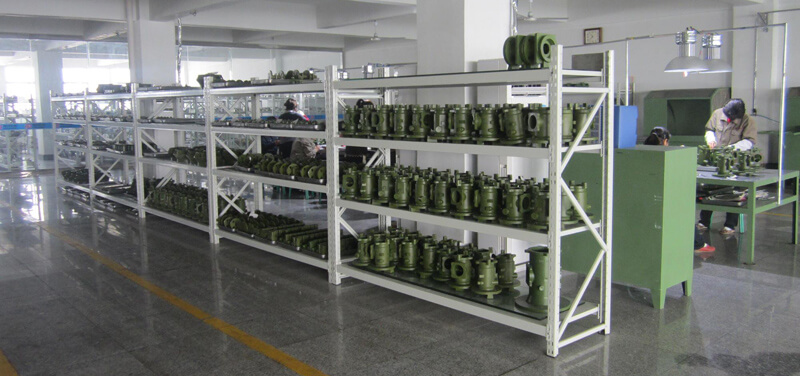Stainless steel casting remains one of the most essential casting processes available to modern manufacturers. Modern technology and machinery in today’s steel casting foundries produce custom stainless steel castings with extremely intricate detail and excellent dimensional accuracy.
Steel Casting Foundry Options While bigger doesn’t always mean better, a large casting foundry will have the best equipment, industry experience, and manpower to bring your project to life.
Once you’ve located a few large casting foundries to compare, use the following criteria to help you select the right one:
One-Stop Shop An experienced foundry will have a history in custom mold making, ideally in-house.
If a steel casting foundry does not offer a one-stop mold making and casting service, be sure to ask about casting production costs, lead times, and budgets. While à la carte services may seem the best approach for tight budgets, the longer lead times due to shipping and back-and-forth can increase costs in the long run. If possible, keep everything in-house.
Machining & Testing Using a steel casting foundry that performs all machining and testing in-house can save valuable time and budget. Ask about the metallurgical lab, the tools, and the inspection process. Stainless steel investment casting produces high-precision parts with tight tolerances, but most commercial and industrial applications will require additional machining and testing prior to use.
For steel castings, be sure to ask about surface treatments. Choose a steel casting foundry that offers customized, cost-effective surface treatments and an online gallery of precision machining equipment. Industry Knowledge If your project is specific to the arms or aviation industry, it’s important to work with a casting foundry who has expertise in that sector. An experienced casting foundry will give you the advantage of producing virtually any shape imaginable, no matter how complex, without significantly affecting the cost of the part. Internal holes and passages are as easy to cast as external components such as flanges, shoulders, and bosses. Be sure to ask about processes that will control shrinkage.
As molten metal shrinks when it freezes, the shapes within the design need to be considered – long, slender parts will freeze and shrink at a faster rate than stout or rounded shapes – so that shrinkage is better controlled. As a rule, overall size ratios within a single design should be kept at less than 4:1 to ensure uniform solidification. With some design acumen and a basic understanding of how molten metal behaves when it freezes, virtually any complex component design can be turned into a high-quality, detailed, and repeatable cast with the help of an experienced casting foundry.
Streamline Assembly Investment casting also offers the ability to combine multiple parts into a single unit and cast in one application, saving the manufacturer hours of finishing and assembly time. The steel casting foundry that you choose should not only be aware of this option, but they should recommend it during the design and prototyping phase. For example, multiple parts of a component that would normally be joined together after the casting process by welding or other machining processes can be redesigned and cast as one single part.
By reducing post-production hours, reducing waste, and streamlining the “assembly” process through thoughtfully combined designs, the casting process becomes more efficient and less costly to the manufacturer. Custom Steel Casting While generally best suited to smaller, lighter (less than 150 lbs.) castings, this method remains essential to manufacturers of heavy automotive gears, dental fixtures, aerospace components, and everything in between.
From firearms to hydraulics — whatever your industry, an experienced steel casting foundry should be able to assist you in engineering custom steel investment casts for any project.
Multiple available grades of stainless steel allows foundries to customize your design to meet the requirements of every industry and produce economical, high-quality, and enduring components. Their experts will guide you through every step of the process and provide a reliable estimate for your project.

Steel casting is a crucial process for modern manufacturers, offering intricate detail and precise dimensional accuracy. When selecting a steel casting foundry, it’s important to consider several factors to ensure the best outcome for your project. Here are some key criteria to help you make an informed decision:
- One-Stop Shop: Look for a steel casting foundry that offers a comprehensive range of services, including custom mold making and casting production. Having these processes in-house can save time, reduce costs, and streamline the overall project. Avoid opting for à la carte services, as they may result in longer lead times and increased expenses due to shipping and communication delays.
- Machining & Testing: Inquire about whether the foundry performs all machining and testing internally. This integrated approach can save valuable time and budget. Additionally, ask about their metallurgical lab, inspection process, and surface treatment options. A reliable steel casting foundry should offer customized and cost-effective surface treatments, along with an online gallery showcasing their precision machining equipment.
- Industry Knowledge: If your project is industry-specific, such as arms or aviation, it’s crucial to collaborate with a foundry that has expertise in that particular sector. An experienced foundry will be able to produce complex shapes without significantly affecting costs. Make sure to discuss processes that control shrinkage, as it plays a crucial role in maintaining the integrity of the castings. With the guidance of an experienced foundry, complex designs can be transformed into high-quality, detailed, and repeatable casts.
- Streamline Assembly: Investment casting provides the opportunity to combine multiple parts into a single unit, streamlining the assembly process and reducing finishing time. Ensure that the chosen steel casting foundry recognizes this option and recommends it during the design and prototyping phase. By combining designs intelligently, post-production hours can be reduced, waste can be minimized, and the overall casting process becomes more efficient and cost-effective.
- Custom Steel Casting: Seek a foundry that specializes in custom steel investment casting. While this method is well-suited for smaller and lighter castings, experienced foundries can cater to various industries, including automotive, aerospace, and dental. Multiple grades of stainless steel should be available to meet industry requirements and produce economical, high-quality, and durable components. Look for a foundry that guides you through the entire process and provides reliable estimates for your project.
- Industry Experience: Consider the steel casting foundry’s industry experience and track record. Look for testimonials or case studies that demonstrate their capabilities and expertise in sectors such as aerospace, automotive, electrical, firearms, and the food industry.
we have experience in casting parts for all of the following sectors:
Aerospace Investment Casting
Automotive Casting Services
Automotive Parts Die Casting
Electrical Industry Casting
Firearms Investment Casting
Food Industry Castings
Conclusion:
Hengke Metal is a reputable steel casting foundry that offers cost and time savings without compromising quality. With expertise in producing steel components with complex shapes and dimensional accuracy, they have the necessary experience and equipment for successful outcomes. Reach out to our Customer Service/Sales team today and add Hengke Metal to your list of potential casting service providers.
